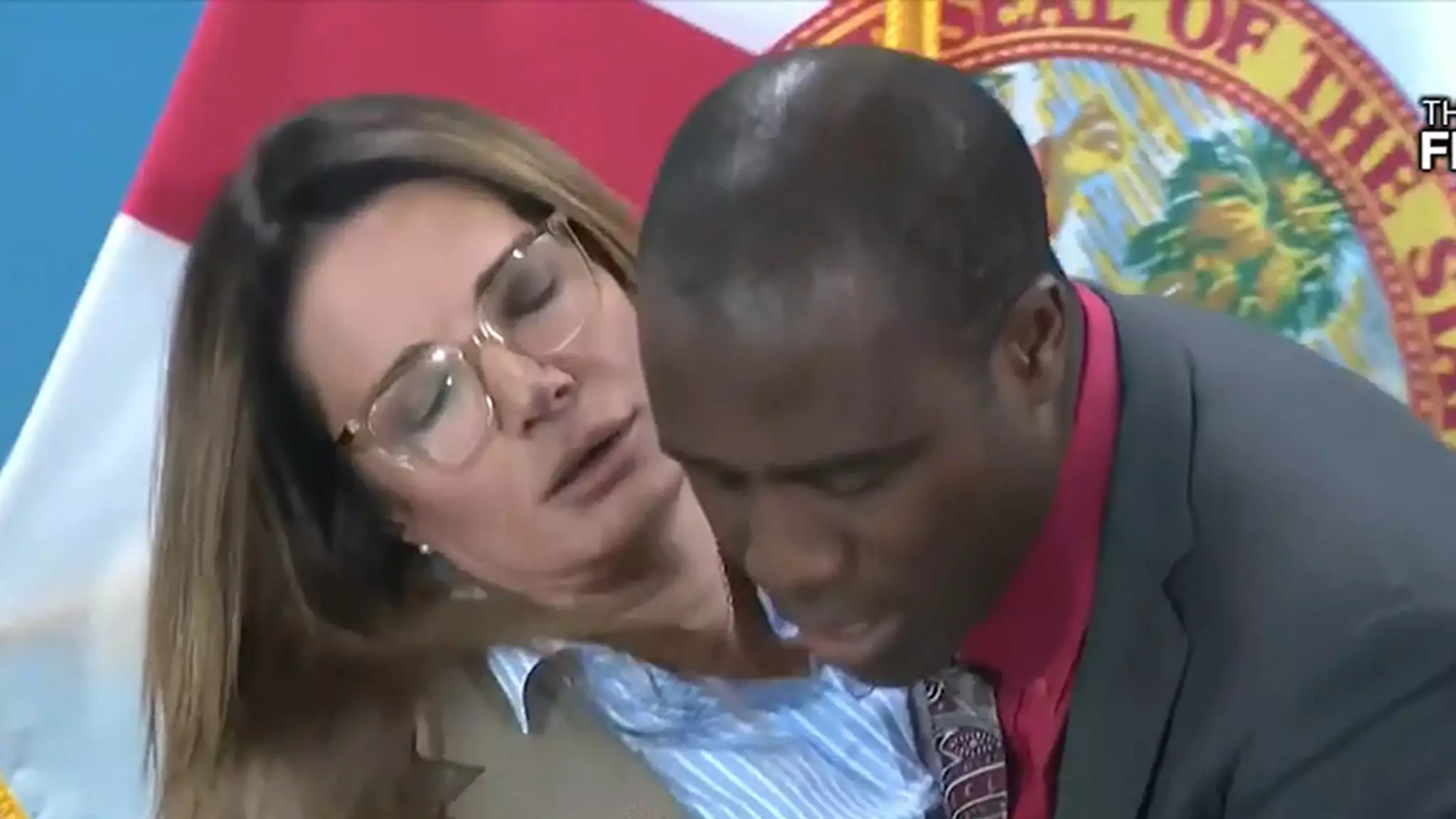In a peculiar sequence of events during a press conference in Florida, a moment meant to showcase political progress took an unexpected turn. Republican State Senator Ileana Garcia, representing Florida’s District 36, was in the midst of delivering a speech about critical environmental legislation when she suddenly faltered. This incident highlights not just the fragility of life in a political landscape but also the unpredictable nature of public appearances.
As Garcia addressed the audience, she turned to Governor Ron DeSantis to express her discomfort, her words sending ripples of concern through the crowd. Just moments later, she lost her balance, her body tilting as she seemingly slipped into unconsciousness. It was a tense moment, both for her supporters and the officials present. Thanks to the quick reactions of State Surgeon General Joseph Ladapo, who swiftly caught her before she fell, the situation was momentarily alleviated, underscoring the importance of preparedness in public health crises.
A Community Response to a Health Crisis
The immediate aftermath of the senator’s fainting spell illustrated the human aspect of politics. Attendees rushed to her side, offering water and assurances, a testament to the community’s support. This unscripted moment highlighted the camaraderie that exists even among political rivals. The reaction was not solely about political spectacle; it demonstrated compassion, something often overshadowed in the fierce battleground of political debate.
The suddenness of Garcia’s collapse sparks a conversation about the pressures faced by public figures. Politics is not only about legislation and governance but also involves a significant amount of stress and scrutiny. Garcia’s recovery—both physical and emotional—was swift. After a brief moment of concern, she stood again, exuding a sense of determination. Her remark, “Are you kidding? This was my moment,” infused humor into a potentially alarming scenario, revealing her tenacity in the face of adversity.
The Significance of Resilience in Leadership
Governor DeSantis, who exhibited patience throughout the unfolding situation, later emerged smiling, seemingly appreciating Garcia’s resilience. His military background as a Navy officer emphasizes the values of perseverance and quick thinking amidst chaos. For both leaders, this incident serves as a reminder that strength is often measured in unexpected ways—not only through how one navigates legislative processes but also through the ability to endure personal crises.
Garcia’s recovery and return to the podium should not merely be seen as a moment of levity but as a reflection of the broader theme of resilience in politics. It is this very quality that allows leaders to connect with their constituents on a human level, transcending partisan lines.
As we witness both the highs and lows of public life, moments like these call for a deeper understanding of the human condition within the political sphere. Leaders are often put under a microscope, and their vulnerabilities might surface unexpectedly, which is just as crucial to their narrative as their triumphs in legislative discussions. In the end, it is these small yet profound instances that resonate with the public—reminding us of the humanity behind the power suits.

